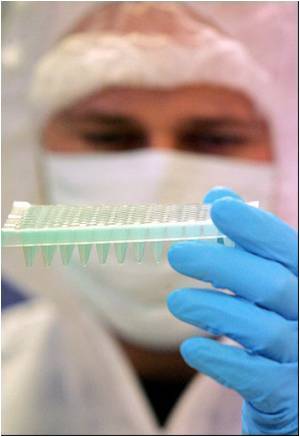
This ability to 'steal' snippets of DNA from other species - known as lateral gene transfer - is responsible for the rapid spread of drug resistance among disease-causing bacteria.
"By understanding why some genes are more likely to spread from one species to the next, we can better understand how new virulent bacterial strains emerge," said co-author Tal Pupko, a visiting scientist at the National Evolutionary Synthesis Center in Durham, NC.
Scientists have proposed several theories to explain why some bacterial genes are more likely to jump into other genomes. One theory, Pupko explained, is that it depends on what the gene does in the cell.
Genes involved in core functions, like converting RNA into protein, are much less likely to make the leap.
"If a species already has the basic molecular machinery for transcription and translation, there's no advantage to taking in another set of genes that do the same thing," said Pupko.
Advertisement
To find out which factor was more important - what a gene does, or how connected it is - the researchers looked for evidence of gene transfer in more than three dozen bacteria species, including a number of pathogens known to cause illness in people.
Advertisement
"The reason some proteins are rarely acquired is because of how connected they are, not because of their function," said co-author Uri Gophna of Tel Aviv University.
Genes whose protein products rely on many partners to do their job are less likely to work properly in a new host, said Gophna.
The authors added that bacteria are more likely to adopt 'loner' genes than genes that are well-connected.
Source-ANI











